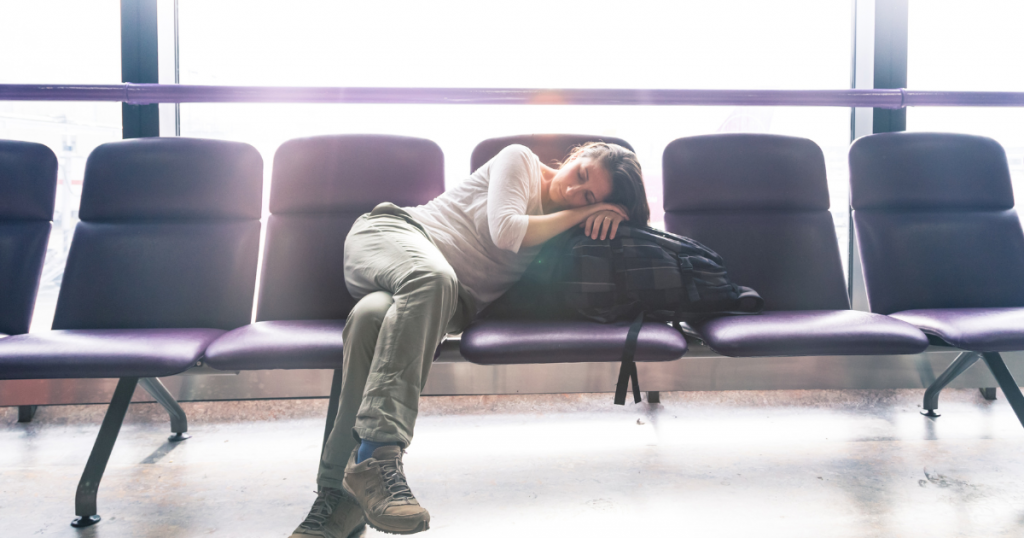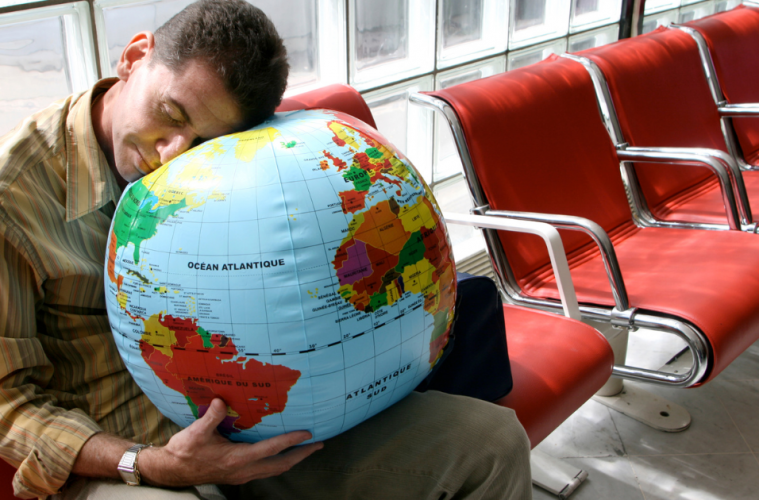Anyone who has traveled, especially internationally, can relate to the pain of feeling jet lag. How to recover from jet lag is a different experience for everyone. For some people, recovering from jet lag can take a couple days, while for others, it may take up to a week for them to feel like their normal self again.
Some symptoms of feeling jet lag can include extreme fatigue, mood changes, generally feeling unwell, having a disturbed and irregular sleep schedule, and trouble concentrating. Ultimately, jet lag can affect your everyday life until you are back into the swing of things. Luckily, there are a few things that you can implement into your routine to help you recover from jet lag as quickly as possible.

Here are some tips on how you can recover from jet lag after an international trip:
Account for one or two days of rest.
After returning back from your international trip, account for one or two days where you can simply rest. If you are arriving home from your trip on a week day, if you are able to, take a day or two off from work so that you can focus on resting, sleeping, and readjusting back into your normal routine. During this time, remember to not overwork yourself and focus on relaxation.
Stay hydrated.
Keeping up with your water intake is extremely important when recovering from jet lag. Long distance travel can cause dehydration, especially since many people avoid drinking water so they can take less trips to the bathroom during their travel. Proper hydration will help to manage your travel fatigue and will help to get you back on a healthy schedule.
Prioritize your sleep schedule.
When you return home from an international trip, you are going to have a whacky sleep schedule. Make sure that you are prioritizing your sleep schedule and creating the most comfortable environment for you to get back on track with your sleeping. Avoid having any distractions in your room while you are catching up on sleep – turn your phone on silent, turn on some white noise, and close your blinds. You may even consider taking Melatonin to help give you a good night’s rest.
Stay on the schedule of your time zone.
Depending on when you arrive home, you may want to immediately sleep. In certain circumstances, this is not recommended. For example, if you arrive home in the morning or early afternoon, aim to spend the rest of your day on that current time zone. This will help acclimate your body to its regular time zone. As hard as it may feel in the moment, it is necessary!
Bring on the caffeine.
You don’t have to tell a New Englander twice to take an extra trip to Dunks – am I right?! In seriousness, recovering from jet lag can feel extremely exhausting, so do not hesitate to bring on the caffeine, as long as you are also hydrating properly. Whether you prefer coffee or teas, any form of caffeine will help you during this time.
Go outside in the sun.
Whether you choose to sit outside and read a book, or go for a walk, try your best to get outside in the sun and experience the fresh air. Getting outside in the sun can help to wake up your body and reduce some of the hormones that make you sleepy. Plus, it is totally proven that sunshine can help to boost some endorphins, which is an added plus!
As you are recovering from jet lag and readjusting to your normal time zone, remember that jet lag is not permanent and that this feeling of exhaustion will pass! Keep to your schedule and routine, manage your sleeping times, and consider the tips we provided. Before you know it, you will be fully adjusted – and ready to travel again!

